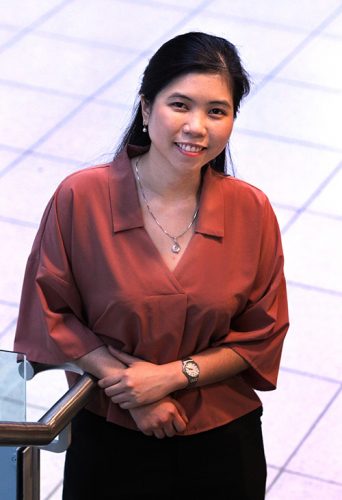
By Wendy Plump, Department of Chemistry
Because of its complex structure, degrading lignin, an environmentally sustainable alternative to petroleum products, into its monomer is expensive and difficult to do, requiring high temperatures and harsh conditions that don’t accommodate the criteria for sustainability.
Professor of Chemistry Rob Knowles and his lab, including Suong (Su) Nguyen, thought it could be done under milder conditions. As it turns out, they were right.
Nguyen, a fourth-year graduate student and the Andlinger Center’s 2020-21 Maeder Fellow in Energy and the Environment, has since published the proof-of-concept paper for light-driven depolymerization of native lignin in ACS Catalysis, using a process the Knowles Lab has been refining for years called Proton-Coupled Electron Transfer (PCET). Today, Nguyen is applying that same PCET method to new materials, most recently synthetic plastic, adding to the quiver of sustainable tools that scientists can access in their investigations.
“We were just very excited about the idea of applying the chemistry we developed in our lab to help address a really cool and important problem in polymer chemistry,” said Nguyen.
“In general,” said Nguyen, “we hope our studies will help to establish a general set of technologies for C–C bond cleavage chemistry in macromolecules and fundamentally impact the field of sustainable polymers.”
The full article appears on the Princeton University Department of Chemistry’s homepage.